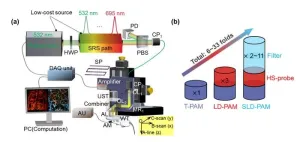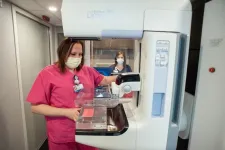Genomics datasets, which underpin the ability to interpret all genetic tests, are known to consist of DNA from predominately white, Northern European populations. As genomics becomes an increasingly important part of everyday healthcare*, barriers to diverse participation must be overcome so that everyone can benefit from genomic medicine, not just the privileged few.
The research shows that conversations that lead by positively framing genomics around potential benefits were met with cynicism and scepticism, due to socio-historical inequalities and misinformation that result in widespread mistrust of the healthcare system, private companies, and government.
Researchers from Wellcome Connecting Science, Genomics England, and language strategy firm maslansky + partners leveraged framing theory and behavioural science to develop alternate ways to connect with traditionally disengaged audiences and then conducted focus groups with 100 people from British communities of varying backgrounds.
The groups were mixed in age and genders, and had limited familiarity with genomics. The individuals self-identified as belonging to communities with Black African, Black Caribbean and Pakistani ancestries, as well as people of various ancestral heritage who come from disadvantaged socio-economic backgrounds – all groups identified as missing from genomic datasets.
The groups were presented with short phrases of genomics for non-expert public audiences, framed by what genomics is and what it can offer, such as personal and scientific benefits. The phrases were based on typical text in patient and participant information leaflets used by the NHS and in research studies, and were delivered by an actor – a Black British woman.
In response to the narratives that lead with the positively-framed scientific and health benefits, the participants expressed clear mistrust and cynicism. In explaining their reactions, some participants cited examples of racism in science, including historical injustices, as well as present-day issues and personal experiences, such as a lack of diversity in clinical trials and unequal access to, and quality of health care. Others evoked controversial applications of genomics, such as cloning, gene editing or mentions in dystopian fiction. Some participants expressed suspicion around claims that genomics would benefit everybody, suggesting people like them can be excluded from studies and clinical trials.
Other reasons behind participants’ scepticism around the benefits of genomics included lack of trust in those who should deliver these benefits, including private companies and governments, scientists and the NHS. Others believed these positive phrases were over-promising and perceived as disingenuous, due to the limitations of current genomics knowledge and lengthy clinical trials.
The researchers suggest a more successful approach is to begin conversations by directly and overtly acknowledging and validating their questions and concerns before introducing details about the science. This means recognising and articulating that inequalities exist for people from marginalised communities. As genomics becomes part of everyday healthcare, these realities must be talked about and addressed if diverse public groups are to confidently access genomic medicine equally.
Professor Anna Middleton, Wellcome Connecting Science and Director of the Kavli Centre for Ethics, Science, and the Public, University of Cambridge, said: “Our research has demonstrated that everyday talk about genomics currently, used by researchers and clinicians alike, has the potential to alienate already disengaged public audiences. We interpret our findings, not in terms of illiteracy about genomics, but as illustrative of the very real socio-historical inequities and inequalities that exist for people from marginalised communities. The conversations about genetics that led with the science and its benefits were triggering for participants - this revealed itself as cynicism and mistrust. And thus continuing to frame our science, only through its benefits, however well-meaning, has the risk of doing harm. Moving forward, we will incorporate the results of this research into the tools and training we offer scientists.”
Keith Yazmir, Partner at language strategy firm maslansky + partners, said: “It’s human nature to communicate in ways that you want to be communicated to. But effective communication is based on meeting your audience where they are – not where you are. This is particularly important when connecting on complex topics like genomics and emotional ones like healthcare. Based on our philosophy that it’s not what you say, it’s what they hear, we were honoured to partner with Wellcome Connecting Science and Genomics England on this ground-breaking work.”
Vivienne Parry OBE, Head of Public Engagement at Genomics England, said: “This is a very important piece of research with far reaching implications. We now need to make it widely available and act on its findings. This will help ensure that everyone benefits from genomic medicine, with no-one left behind.”
ENDS
Contact details:
Emily Mobley
Press Office
Wellcome Sanger Institute
Cambridge, CB10 1SA
Email: press.office@sanger.ac.uk
Notes to Editors:
The team had consent from participants to film their focus groups. A summary video of the conversations is available here (credit: Wellcome Collecting Science):
https://www.youtube.com/watch?v=TwvoRss1WGA
The research was designed and delivered by the language strategy company maslansky + partners (www.maslansky.com), which combine linguistics and behavioral science to understand how to optimize message resonance with different audiences.
The team is grateful to all participants who took part in the focus groups for their time and contribution.
* Department of Health and Social Care, Department for Business Energy & Industrial Strategy, Office for Life Sciences, and Lord Bethell of Romford. Genome UK: the future of healthcare. 2020. https://www.gov.uk/government/publications/genome-uk-the-future-of-healthcare
Publication:
A. Middleton, et al. (2023) 'The Legacy of Language: What we say, and what people hear, when we talk about genomics’. Human Genetics and Genomics Advances. DOI: 10.1016/j.xhgg.2023.100231
Funding:
This research was supported by Wellcome Connecting Science, Genomics England and the Kavli Centre for Ethics, Science, and the Public, University of Cambridge. For full funding information, please refer to the publication.
Selected websites:
Genomics England
Genomics England is a global leader in advancing and delivering genomic medicine at scale, for all. Building on our delivery of the 100,000 Genomes Project, we are enabling the world's first national whole genome sequencing service in the NHS Genomic Medicine Service, delivering the most advanced genomic healthcare today. We maximise the patient and participant benefit of this service by using the same trusted and proven infrastructure and expertise, and consent and governance framework, to support the development of the genomic medicine of tomorrow, together with the NHS, industry, and academia. All this focused on delivering our vision of a world in which everyone benefits from genomics.
https://www.genomicsengland.co.uk [genomicsengland.co.uk]
Kavli Centre for Ethics, Science, and the Public, University of Cambridge
The Kavli Centre is a partner organisation to Wellcome Connecting Science. Based in the Faculty of Education at the University of Cambridge, its mission is: To foster global conversations and build trust by engaging publics and scientists with the ethics of science and its impact on society.
https://www.kcesp.ac.uk/
Wellcome Connecting Science
Wellcome Connecting Science’s mission is to enable everyone to explore genomic science and its impact on research, health and society. Drawing on the ground-breaking research taking place on the Wellcome Genome Campus, Connecting Science inspires new thinking, sparks conversation, supports learning, and understands global attitudes and perspectives. We connect researchers, health professionals and the wider public, creating opportunities and spaces to explore genomic science and its relationship with people, and the world around us.
Wellcome Connecting Science and the Wellcome Sanger Institute are part of the same Wellcome-funded organisation.
https://www.wellcomeconnectingscience.org
About Wellcome
Wellcome supports science to solve the urgent health challenges facing everyone. We support discovery research into life, health and wellbeing, and we’re taking on three worldwide health challenges: mental health, infectious disease and climate and health. https://wellcome.org/
END



